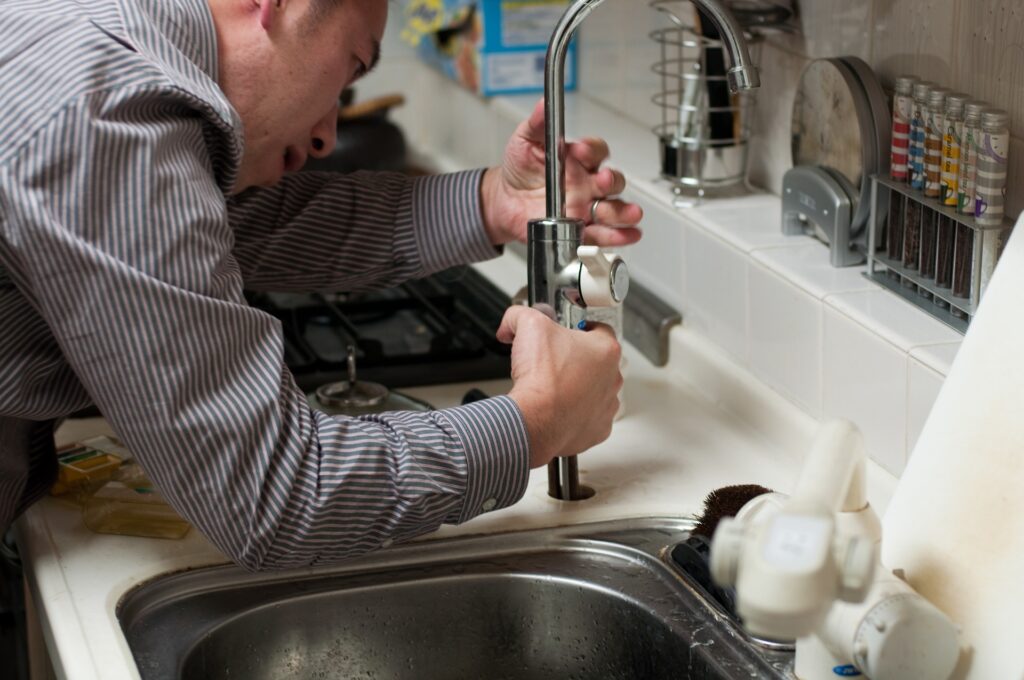The Skilled Labor Shortage
Home Inspection Contingency Explained
Before you go to buy a home, you should get an inspection. A home inspector will look at the current state of the property and alert you to any issues, big or small. But what if the report comes back with some serious problems? What are your options?
What is Inspection Contingency?
Home inspection contingency or sometimes called due diligence contingency is a clause that states that the buyer’s offer is contingent on the results of the home inspection. In other words, the buyer has a right to get the home inspected and after the inspection is complete, they have a limited amount of time to negotiate or even walk away from purchasing the home depending on the results of the inspection. An inspection contingency clause is in place to protect the buyer from purchasing a home in need of serious repairs without some kind of compromise from the seller or being able to walk away. Those buyers who choose to waive inspection contingency take a big risk.
The details of inspection contingency can vary by location as well as the specific clause in the contract. There is also a limit to the amount of time that the buyer can walk away after inspection. Most home inspection contingency clauses will have a time limit of one to two weeks, but this can vary.
What Happens in A Home Inspection?
During a home inspection, a third-party home inspector will take an extensive look at the interior and exterior of the property. They will look at various aspects that may need fixing and write a report on any necessary repairs. A home inspection will typically include evaluating the HVAC system, plumbing, electrical system, roof, insulation, the structure of the home, safety issues, and more. A home inspection is different from a home appraisal as inspectors are not concerned about the value of the home, just the condition it is in.

Home Inspection Results & What Happens Next
A home inspection can have various results. Some reports may include an extensive list of necessary repairs as well as serious problems. Other reports may show that the home only needs minor or limited repairs. After an inspection, the buyer will typically review the results with their real estate agent to determine the next steps. It is important to understand how inspection contingency can play a role in this process and what the outcome may be.
No Response
If the buyer is happy with buying the home as-is, they may choose not to reach out to the seller after the inspection. This can be good news for both the seller and the buyer because it means both parties are happy, and the sale can move forward.
Negotiations
If the home inspection report comes back with problems, the buyer can negotiate the terms of the sale. They may either request the seller make certain repairs or try to negotiate the sale price of the home. These requests must be completed before the inspection contingency expires. The seller will then review the requests and decide what to fix before selling or renegotiate. In a lot of cases, sellers are not required to make any repairs, so they could refuse or make a counteroffer.
Walk Away
If the property has significant and serious issues, then the buyer has a right to back out of the home purchase and walk away without any penalties if they have the inspection contingency. Typically, buyers only have a limited amount of time like seven to fourteen days to walk away. Backing out of a home purchase after inspection tends to be less common as most people will try to go back to the negotiating table instead.
At Curbio, we understand the importance of home inspections in the home-selling process and just how devastating a buyer walking away can be. To help keep the sale from falling through, we offer a home inspection repair tool that provides fast quotes and prioritizes repair projects. To learn more, contact us today.
Frequently Asked Questions
While a big fear for many homeowners, buyers rarely back out after a home inspection. Not only do the repairs often need to be serious or extensive for them to be able to walk away but also negotiations can be used to save the sale instead. According to one report, about 15% of home sales fall through for one reason or another such as home inspection.
Inspection contingency usually includes a limited amount of time for the buyer to walk away from the offer without any penalties. In most cases, this time limit is somewhere between one or two weeks. If the inspection contingency expires, the buyer may still be able to break the contract for other reasons but would likely lose their deposit.
Because inspection contingency is there to protect the buyer, waiving inspection contingency is typically not recommended. Doing so could result in losing all your bargaining power or purchasing a home with extensive problems that will cost you a lot of money down the road. In some cases, buyers will waive inspection contingency in a hot market to make their offer more appealing, but doing so is a big risk.
Homes inspections are done on behalf of the buyer to give them an out if needed, so sellers usually cannot legally back out of the sale after a home inspection. In rare cases, sellers could be uncooperative and push the buyer into backing out after the home inspection to get out of the contract themselves.


